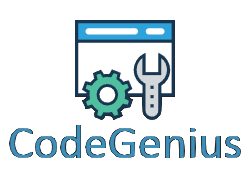Embarking on the journey to learn coding is akin to setting sail on a vast digital ocean. For aspiring developers, the initial excitement of creating something from lines of code can quickly be overshadowed by the challenges that lie in wait. Yet, understanding how to navigate these hurdles is crucial for anyone looking to master the art of programming.
Confronting Energy Drain: Fueling Your Coding Aspirations
One of the first hurdles many aspiring developers face is the energy drain. After a long day at work or school, diving into the complexities of code can feel daunting. The key to overcoming this is to strategize around your peak energy times. Some find their coding sweet spot in the early hours of the morning, while others harness a second wind late at night. Listen to your body's rhythms and schedule your learning sessions accordingly.
Reducing energy drain also involves minimizing other life stresses. This could mean negotiating a more flexible work schedule or enlisting family support to create a quiet, dedicated space for study. Remember, the journey to becoming a developer is a marathon, not a sprint. Ensuring you have the energy to consistently engage with coding is more important than cramming in as much information as possible in a single session.

The Perils of Rushing: Embracing a Slow and Steady Learning Pace
The desire to learn fast is understandable in our fast-paced world. However, when it comes to coding, rushing through the basics can lead to a shaky foundation. The intricacies of programming languages and the logic behind coding require time and patience to fully understand. Embrace a mindset of deep learning rather than fast learning.
One effective strategy is to learn by building. Choose small projects that interest you and are just slightly above your current skill level. This approach not only solidifies your understanding of basic concepts but also keeps the learning process engaging. Additionally, writing about what you've learned, even in short articles or blog posts, can deepen your understanding and serve as a valuable reference for future learning.
Tackling Programming Language Challenges: Finding Your Footing
For many beginners, choosing a programming language can feel like deciphering a cryptic message. The key here is not to get bogged down by the multitude of choices. Instead, focus on languages that align with your goals. For instance, if web development intrigues you, starting with HTML, CSS, and JavaScript is a logical choice.
Once you've picked a language, diving into its core concepts, syntax, and features is essential before taking on more complex projects. Resources like Stack Overflow and other online communities can be invaluable for overcoming roadblocks. Don't hesitate to ask for help; the coding community is remarkably supportive of newcomers.
Continuing our exploration into overcoming the challenges of learning to code, we now delve into strategies that keep the flame of motivation burning, how to kickstart your coding journey with confidence, and the art of demystifying complex programming concepts. These pillars are crucial for not only sustaining your learning momentum but also ensuring a deeper comprehension and application of coding skills.
Stoking the Fires of Motivation: The Heartbeat of Progress
Staying motivated in the face of challenges is what separates successful learners from those who falter. It's essential to set clear, achievable goals that act as milestones on your coding journey. Celebrate each small victory, whether it's fixing a bug, understanding a new concept, or completing a project. These moments of triumph fuel your drive to continue.
Aligning projects with your interests can also significantly boost motivation. If you're passionate about environmental issues, consider developing an app that tracks carbon footprints. Interest-driven projects not only make the learning process more enjoyable but also imbue your work with a sense of purpose.
Participating in coding challenges and hackathons can also provide a motivational boost. These platforms offer a way to test your skills, learn from others, and even gain recognition for your work. Websites like Codecademy and HackerRank host challenges that cater to various skill levels, providing an excellent opportunity for growth and learning.
Embarking on Your Coding Journey: First Steps to Take
For beginners, the vast sea of programming languages and frameworks can seem daunting. The key to a strong start is choosing a language and learning path that aligns with your interests and career goals. If you're drawn to web development, HTML, CSS, and JavaScript are indispensable. For software development, languages like Python and Java are foundational.
Leveraging online resources and tutorials is an effective way to begin. Platforms such as FreeCodeCamp, Udemy, and Coursera offer structured courses that range from beginner to advanced levels. These resources often include hands-on projects that allow you to apply what you've learned in practical scenarios.
For those who prefer a more immersive learning experience, coding bootcamps offer intensive, structured training programs that cover everything from basic coding principles to advanced frameworks and technologies. These bootcamps not only equip you with the necessary skills but also often provide career support to help you land your first coding job.

Unraveling the Mysteries of Programming Concepts
Understanding complex programming concepts can be one of the most daunting aspects of learning to code. Adopting a systematic approach to learning can make these concepts more approachable. Break down each concept into manageable parts, and tackle them one at a time. Use diagrams and flowcharts to visualize processes and data flow, which can help clarify abstract ideas.
Hands-on practice is crucial for cementing your understanding. Experiment with code snippets, modify them, and observe the outcomes. This trial-and-error process is invaluable for deep learning.
When faced with difficult concepts, don't hesitate to seek clarification from more experienced programmers or online communities. Platforms like Stack Overflow and GitHub are teeming with professionals and enthusiasts who are usually eager to help. Engaging with these communities can provide new perspectives and solutions to coding problems.
Debugging and Problem-Solving: Navigating the Maze
Debugging is an inevitable part of coding, often viewed with dread by beginners. However, it's also one of the most valuable learning experiences, offering deep insights into how code operates and where logic can falter. To become proficient in debugging, one must first embrace it as a crucial step towards improvement rather than a setback.
Systematic Approach: When faced with a bug, resist the urge to randomly tweak code in hopes of a quick fix. Instead, adopt a methodical approach—identify where the issue originates, understand why the error occurs, and then strategize a solution. This process not only solves the current problem but also sharpens your problem-solving skills for future challenges.
Leverage Debugging Tools: Most programming languages come with their own set of debugging tools. Familiarize yourself with these tools as they can provide valuable insights into the execution flow of your code, variable states, and where exactly things go awry. For web developers, browser developer tools are indispensable for debugging HTML, CSS, and JavaScript.
Celebrate Debugging Successes: Each bug you solve is a victory in its own right. Celebrating these moments can turn debugging from a feared task into a rewarding puzzle-solving experience, boosting your confidence and proficiency in coding.
Finding Time to Code: Balancing Passion and Responsibilities
One of the biggest challenges aspiring developers face is finding the time to code. With responsibilities like work, school, and family, carving out dedicated time for coding can seem daunting. However, with discipline and a few strategic adjustments, it's possible to make room for coding in even the busiest schedules.
Set Clear Goals: Define what you want to achieve with your coding practice. Whether it's completing a course, building a project, or mastering a specific concept, having clear goals helps prioritize coding in your daily routine.
Schedule Coding Sessions: Treat your coding practice like any other important appointment. Schedule regular, dedicated times for coding and stick to them. Even short daily sessions can lead to significant progress over time.
Build Passion Projects: Working on projects that you're passionate about can make coding something you look forward to, rather than just another task. Passion projects not only enhance learning but also make it easier to dedicate time to coding.
Possibilities
Learning to code is a journey filled with challenges, but also immense satisfaction and opportunities for personal and professional growth. By adopting strategies to manage energy levels, embracing a steady pace of learning, tackling programming languages methodically, staying motivated, systematically approaching debugging, and finding time to practice, aspiring developers can navigate the hurdles of learning to code.
Remember, coding is as much about the journey as it is about the destination. Each challenge overcome is a step forward in your development journey, building not just your coding skills but also your problem-solving abilities, resilience, and creativity. With perseverance and the right strategies, the challenges of learning to code transform into stepping stones towards becoming a proficient developer, ready to tackle the complexities of the digital world.
